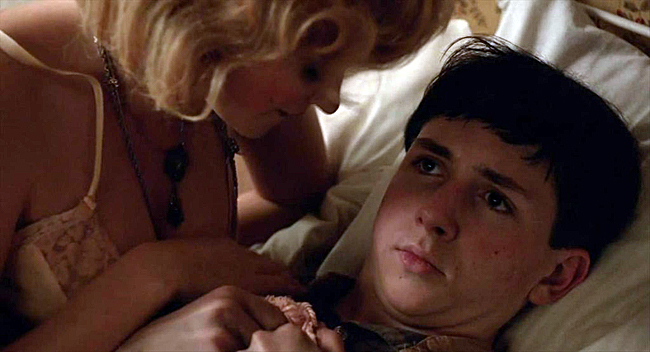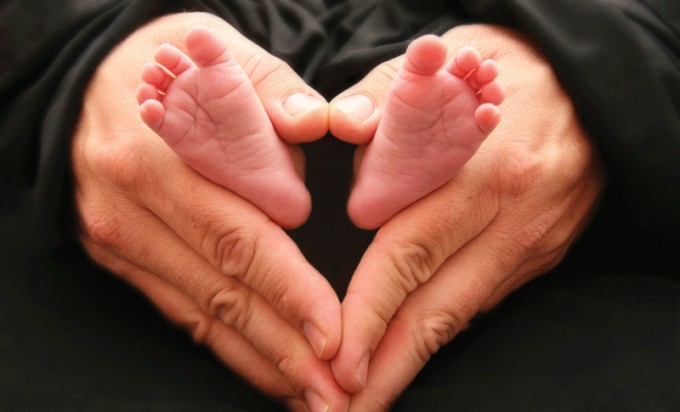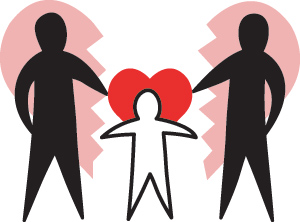#1. Women have the right to vote without agreeing to die (for now)

When a man turns 18, he is required by law to register for the Selective Service. While the draft has been eliminated in the United States, thanks to the work of Milton Friedman, there is technically still a registry in the event the government ever decided that it’s important to sacrifice the lives of a few hundred thousand young men.
Women in America enjoy the privilege of being able to exercise their constitutional rights without also have to be obligated to die in defense of those rights.
Edit: The senate recently passed legislation requiring women to register for the selective service. Soon their time will come to die unwillingly for their country.
#2. Women Have Genital Integrity Rights
Circumcision of men is a practice that is legal, and despite that fact, it is illegal to cut any part of a female infant’s genitalia. Many parents fail to see the double standard in this custom. This is done without consent and only to male infants and children.
Many articles and research devoted to the study of female genitalia mutilation or (FGM) in other parts of the world as common practice, or “Female Circumcision” , questioning whether it is a rite of passage or a violation of rights without giving a thought to the fact that boys are victims to this practice today in America. Many argue it is still not as harsh as FGM.
RELATED: Should we ban male and female circumcision?
#3. Women Have The Right To Choose Parenthood
Related: Woman Lies About Paternity, Man Spends 5 Years In Jail (VIDEO)
Feminists claim that women do not have “equal rights”, yet continue to advocate for “special rights” without seeing the hypocrisy. Women have currently are entitled to three legal options to absolve themselves from their children, morally and financially. that they do not wish to take responsibility for.
1. Women may abort the child before it is born
2. Women may put the child up for adoption (without having to notify or identify the father)
3. Woman may leave the infant, in accordance to Safe Haven law to be wards of the state and walk away.
As a woman, I cannot be forced into parenthood, but I have all the legal power to force a man into providing financial support for my choice to keep the child. Depending on the state one lives, a man can be forced to pay for children, even in cases where they are not the biological father.
Although I may have personal reservations about whether changing these laws would help to make more fathers step up to the responsibility, I still believe that these laws work to undermine any argument for equality by allowing ‘special’ rights in place where women claim they have none.
Related: DNA Proves Man Is Not The Father; Court Makes Him Pay $30k Anyway
#4. Women Have The Right To Be Assumed Caregivers
When fighting for legal custody today, many states the law will still assume that one parent is a “primary caregiver” and one “tertiary caregiver”. Typically the primary caregiver is a woman. There is such a thing as “shared custody”, however it requires that the tertiary caregiver sue to prove themselves worthy of equal parenting, which is difficult and costly.
Additionally, the legal presumption of shared parenting upon divorce – that children have a legal right to an equal relationship with both their mother and their father following relationship breakdown – is strongly resisted by the National Organization for Women (NOW) and other feminist organizations who know that women will almost always win custody of children under the default laws.
In fact, men who can afford to purse legal remedies and challenge primary custody stand a very good chance of winning. So, while the law does not specifically indicate that custody will be awarded to women, the defacto result of primary/tertiary caregiver custody law is that women have a legal right to be assumed caregivers for children. Men do not.
#5. Women have the right to call unwanted, coerced sex, rape

This Mad Men scene hardly stirred a conversation after it aired and there’s no doubt it would have if the roles were reversed. It’s understood that in our society that women have agency over their bodies and any hint of coercion into sexual interaction is seen as a violation of a woman’s rights. But for men, it is presumed that they “must have wanted it.”
This applies to many situations, especially those cases where female teachers have sex with their underage male students. This double standard is demonstrated within the legal system, where men receive harsher sentences for the same crimes women commit.
#6. Women have domestic violence shelters and government housing benefits
Men are generally not eligible to receive aid from domestic violence shelters. There are no court advocacy programs for male victims of domestic violence, and men and their children are not eligible for state and federal money for housing like women are if they are abused. As of now, there is only one shelter for male victims of domestic violence, the Valley Oasis Shelter. Women have approximately 1,800.
#7. Women have the right to exclusive benefits for being a business owner
 Own a small business? If you’re a woman you can get significant benefits from the government. There are multitudes of resources available to women that are not available to men, such as loans and tax breaks. There’s even free grant money available with direct appropriations coming out of the taxpayer’s wallet in order to give women a leg-up in starting a businesses.
Own a small business? If you’re a woman you can get significant benefits from the government. There are multitudes of resources available to women that are not available to men, such as loans and tax breaks. There’s even free grant money available with direct appropriations coming out of the taxpayer’s wallet in order to give women a leg-up in starting a businesses.
The Small Business Administration aggressively regulates male-owned businesses that try to pass themselves off as female owned.
From the SBA:
If you are a male-owned business and you make your wife or another woman 51 percent owner of the stock in order to qualify for 8(a) benefits, you are spinning your wheels. The SBA auditor will know what you are doing: 51 percent ownership is a red flag. Similarly, if the auditor comes to your office and sees that the male’s office is bigger than the female’s, you are not going to be certified. You must be able to show that the business is managed and controlled on a daily basis by a woman, and that the woman is the person who makes the day-to-day decisions of the company.
So tell us more about this patriarchy you speak of?








